Tummy Tuck in Israel
Search and Compare the Best Clinics and Doctors at the Lowest Prices for Tummy Tuck in Israel

Find the best clinics for Tummy Tuck in Israel
With Medijump you can browse 7 facilities offering Tummy Tuck procedures in Israel. The cheapest price available is $4,891 in Ramat Gan. And for the cheapest price globally, prices start from $76 in Czech Republic.
Tummy Tuck in Ramat Gan
Price: $ 4,891
Tummy Tuck in Tel Aviv
Price: $ 8,434
Czech Republic offers the best prices Worldwide
Price: $ 76
From 24 verified reviews
sigalit kochmeister, 11 February 2020
Very professional, kind and attentiveLovely clinic and wonderful staffHighly recommend
From 24 verified reviews
Raymonde Amsalem, 02 February 2020
True courtesy and integrity! Uncompromising professionalism in maintaining a natural and flattering aesthetic appearance. Dr. Meir Cohen and his staff are simply outstanding! Highly recommend
From 109 verified reviews
Y N, 22 September 2020
Excellent medical center, with friendly staff and highly qualified doctors.Thank you for your work.My operation was successful
From 126 verified reviews
Y Jilani, 19 September 2020
A huge academic hospital serving the greater jerusalem area, world class health professionals and good location and amenities!
From 122 verified reviews
fadi hreaz, 27 August 2020
Hospital gives reasonable treatment but poor sorting
Tel Aviv Sourasky Medical Center (Ichilov Medical Center), can be found in Arison New Hospitalization Building, Tel Aviv, Israel and offers its patients Tummy Tuck procedures as well as 428 other procedures, across 29 different procedure categories. At present, there is no pricing information for Tummy Tuck procedures at Tel Aviv Sourasky Medical Center (Ichilov Medical Center). The pricing information is quite specialised, so it's only available on request, and the average price is around ฿239,761. Many medical professionals work at the Clinic, with 13 in total, and Tel Aviv Sourasky Medical Center (Ichilov Medical Center) is accredited by just one known accreditations institute, JCI Accredited
Health Tour, can be found in Ramat Yam St, Herzliya, Israel and offers its patients Tummy Tuck procedures as well as 105 other procedures, across 21 different procedure categories. At present, there is no pricing information for Tummy Tuck procedures at Health Tour. The pricing information is quite specialised, so it's only available on request, and the average price is around $6,662. The lead specialist at the Hospital will be carrying out all the treatments, and Health Tour has several accreditations, including: Accreditation Programme of Health OrganizationISPS - The Israel Society of Plastic Surgeons
- Home
- Israel
Compare Before & After Photos of _procedure_photos.phpTummy Tuck
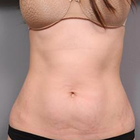

Front view
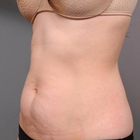
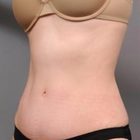
Half-side view
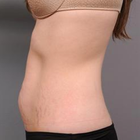
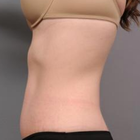
Full-side view
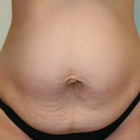
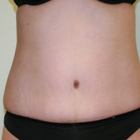
Front view
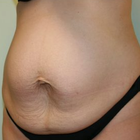
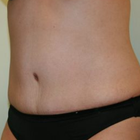
Half-side view
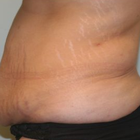
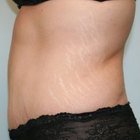
Full-side view


Full-side view
WHY US?
At Medijump, we're making medical easy. You can search, compare, discuss, and book your medical all in one place. We open the door to the best medical providers worldwide, saving you time and energy along the way, and it's all for FREE, no hidden fees, and no price markups guaranteed. So what are you waiting for?

Free

Best Price

Widest Selection

Risk-Free
What you need to know about Tummy Tuck in Israel

Also known as abdominoplasty, a tummy tuck is a surgical procedure to create a toned, firm, and flat abdomen by removing excess skin and fat. It has both cosmetic and medical benefits as it can tighten the abdominal muscles, restore the contour of the belly, improve posture, correct hernia, and reduce stress urinary incontinence.
A tummy tuck is suitable for people who want to remove excess skin due to a significant weight loss, aging, or pregnancy. However, not everyone can undergo the procedure. Your surgeon may not allow you to undergo the procedure if you plan to lose a significant amount of weight, you might want to get pregnant in the future, have a body mass index (BMI) that is greater than 30, smokes, have a severe chronic condition, and had an abdominal surgery that caused scar tissue in the past.
What is the cost of Tummy Tuck in Israel?
The price of a Tummy Tuck within Israel primarily hinges on several elements such as the operating doctor's expertise and credentials, hospital selection, and the intricacies of the operation. It could also fluctuate based on your distinct objectives and the degree of surgical intervention required. Ensure you clarify with your clinic if the cited price includes all facets of patient care, from the initial consultation to follow-up appointments.
Engaging in open conversations with your healthcare provider about the all-inclusive costs is essential. Typically, health insurance won't cover aesthetic surgeries like Tummy Tuck. However, they may partially or completely shoulder the cost if the procedure aims to address health issues such as hernias or skin conditions caused by surplus skin. Hence, a comprehensive discussion with your insurance provider about this matter is absolutely crucial.
What does a Tummy Tuck Procedure Involve?
A tummy tuck procedure will get rid of some of your excess skin and fat and will tighten the muscles in your abdominal wall.
What you need to understand is that a tummy tuck procedure is not an alternative for weight loss or an appropriate exercise program. While its results are significantly permanent, maintaining a positive outcome will require you to have a healthier lifestyle.
Furthermore, this type of treatment procedure is not the same as liposuction. A tummy tuck is a major surgery and not all individuals who wish to undergo it are good candidates. Generally speaking, this specific type of treatment procedure is for both men and women who are in good health. This is also suitable for women who have had more than one pregnancy, as well as both men and women who were formerly obese and still have excess fat and loose skin around their belly area.
You will be advised to postpone your plans for a tummy tuck procedure if you are:
- Planning to get pregnant - you may want to consider it once you’re done having children. A tummy tuck tightens your vertical muscles and future pregnancies may separate those muscles.
- Planning to lose weight - tummy tuck should be done after weight loss.
In preparation for a tummy tuck procedure, you will need to have a consultation with your surgeon. During your consultation, you will be asked about your expected result, goals. Furthermore, your surgeon will also discuss the following options:
- Partial abdominoplasty (Mini abdominoplasty) - this is for those people who have fat deposits below their navel area. This type of tummy tuck procedure usually lasts about two hours, depending on the case.
- Complete abdominoplasty - With this type of tummy tuck surgery, an incision is usually from hip bone to hip bone following the contouring of skin, tissue, and muscle as needed. It will also be required to move the patient’s belly button; patients must also have tube drainage under their skin for a few days.
Before your actual surgery, you may be asked to do the following:
- Quit smoking two weeks before and two weeks after your surgery.
- Eat well balanced complete meals.
- Stop taking certain medications before and after your surgery (prescription drugs, herbal medicines, and supplements)
A tummy tuck procedure typically lasts for about one to five hours, depending on your case. You will also be given general anesthesia while you undergo the surgery, meaning, you will be asleep during the whole procedure.
How Long Should You Stay in Israel?
Depending on the extent of your tummy tuck, you may need to stay in the hospital overnight or leave the hospital on the same day. However, since you have to attend follow-up checkups and allow your body to heal, you have to stay in Israel for at least 7 days following your discharge from the hospital. Your surgeon will check your overall health and remove the stitches during the follow-up checkups.
What's the Recovery Time for Tummy Tuck Procedures in Israel?
The recovery period after a tummy tuck depends on various factors, such as your general health, body weight, and age. In general, you may be able to go back to work (if your job does not require a lot of physical activities) and perform light exercises (such as walking) within 2 to 3 weeks after the surgery. You may need to wait for about 6 to 8 weeks until you can go back to your full normal routine, including performing vigorous activities. Still, your body will continue to heal for a few more months, so it’s better to take it easy until your surgeon allows you to return to your full activity.
What sort of Aftercare is Required for Tummy Tuck Procedures in Israel?
Your surgeon will give you detailed aftercare instructions. To avoid any complications, it is important that you follow them closely. The instructions may include restrictions (such as staying away from alcohol and nicotine), light exercises, and a healthy diet. Your surgeon will also tell you how to find an optimal resting position to make you comfortable during recovery. It is important to keep moving and doing some light exercise after the surgery to keep your blood flowing and reduce the risk of a blood clot.
To maintain the results of your tummy tuck, you need to maintain a well-balanced diet and exercise regularly, at least about 30 to 60 minutes every day. You should also limit your alcohol intake. Staying fit and in shape is the main key to keeping the results for a long time.
What's the Success Rate of Tummy Tuck Procedures in Israel?
Most patients who have had a tummy tuck reported that they achieve positive results.The Tummy Tuck has exhibited a noteworthy record of success, with a plethora of patients revealing remarkable enhancements in self-concept and perception of physical appearance following the procedure. Nonetheless, it's crucial to harbor genuine prospects and apprehend that the outcomes of the procedure may not always be as anticipated, as they hinge on personal factors such as body framework, genetic inclinations, and lifestyle habits such as exercise and alimentation.
The proficiency of the surgeon and the facilities of the clinic where the procedure transpires greatly influences the success rate. Another pivotal success determinant should be the satisfaction of the patients with the outcomes. Hence, patients are motivated to actively participate in the decision-making procedure, sharing their aspirations and receiving feedback on attainable results.
Only about 3.1% of people developed complications following the surgery.
Are there Alternatives to Tummy Tuck Procedures in Israel?
While there are non-surgical options that can be considered as an alternative to this type of treatment procedure, it's important to remember that these alternatives will not give you the same results as a tummy tuck. These non-surgical alternatives only give off limited amounts of skin tightening and a small amount of non-surgical fat reduction.
CoolSculpting - in this procedure, your fat cells will be frozen and eventually be eliminated by your body. You will usually see results after a few weeks and its final effects will be shown typically within three months.
SculpSure - unlike CoolSculpting, SculpSure makes use of laser beam light to kill your fat cells. During the procedure, the laser will be used to heat the fat cells to a point of irreversible damage. Once your fat cells are damaged, they will eventually be swept away by your body’s lymphatic system. This procedure is particularly great for the upper and lower abdominal area, as well as flanks. Little to no recovery time is needed, and full results can be seen within 12 weeks after the first treatment.
What are Potential Risks of Tummy Tuck?
Although the success rate is high, you need to be aware that the procedure does have some risks of complications. These include:
- Seroma (fluid accumulation beneath the skin)
- Unexpected scarring
- Poor wound healing
- Unexpected scarring
- Tissue damage or death
- Bleeding
- Infection
- An allergic reaction to anesthesia
- Changes in skin sensation
This is why following your surgeon’s aftercare instruction is very important, as it helps reduce the risk of complications.
Whilst the information presented here has been accurately sourced and verified by a medical professional for its accuracy, it is still advised to consult with your doctor before pursuing a medical treatment at one of the listed medical providers
No Time?
Tell us what you're looking for and we'll reachout to the top clinics all at once
Enquire Now

Popular Procedures in Israel
Prices Start From $111

Prices Start From $120

Prices Start From $931

Prices Start From $236

Recommended Medical Centers in Israel for Tummy Tuck

- Interpreter services
- Translation service
- Religious facilities
- Medical records transfer
- Medical travel insurance
- Health insurance coordination
- TV in the room
- Safe in the room
- Phone in the room
- Private rooms for patients available

- Interpreter services
- Translation service
- Religious facilities
- Medical records transfer
- Medical travel insurance
- Health insurance coordination
- TV in the room
- Safe in the room
- Phone in the room
- Private rooms for patients available

- Interpreter services
- Translation service
- Religious facilities
- Medical records transfer
- Medical travel insurance
- Health insurance coordination
- TV in the room
- Safe in the room
- Phone in the room
- Private rooms for patients available

- Interpreter services
- Translation service
- Religious facilities
- Medical records transfer
- Medical travel insurance
- Health insurance coordination
- TV in the room
- Safe in the room
- Phone in the room
- Private rooms for patients available

- Interpreter services
- Translation service
- Religious facilities
- Medical records transfer
- Medical travel insurance
- Health insurance coordination
- TV in the room
- Safe in the room
- Phone in the room
- Private rooms for patients available

- Interpreter services
- Translation service
- Religious facilities
- Medical records transfer
- Medical travel insurance
- Health insurance coordination
- TV in the room
- Safe in the room
- Phone in the room
- Private rooms for patients available

- Interpreter services
- Translation service
- Religious facilities
- Medical records transfer
- Medical travel insurance
- Health insurance coordination
- TV in the room
- Safe in the room
- Phone in the room
- Private rooms for patients available

- Interpreter services
- Translation service
- Religious facilities
- Medical records transfer
- Medical travel insurance
- Health insurance coordination
- TV in the room
- Safe in the room
- Phone in the room
- Private rooms for patients available

- Interpreter services
- Translation service
- Religious facilities
- Medical records transfer
- Medical travel insurance
- Health insurance coordination
- TV in the room
- Safe in the room
- Phone in the room
- Private rooms for patients available

- Interpreter services
- Translation service
- Religious facilities
- Medical records transfer
- Medical travel insurance
- Health insurance coordination
- TV in the room
- Safe in the room
- Phone in the room
- Private rooms for patients available
Tummy Tuck in and around Israel
About Israel
Israel celebrated 70 years of independence in 2018 - in what is a truly ancient land. The world’s only Jewish and democratic state is home to sites sacred to Judaism, Christianity, and Islam. While these holy places are truly unique attractions, there is more to Israel than religious heritage and complex politics. Jerusalem is the official capital and holy city to three world religions, previously mentioned, while Tel Aviv brims with beaches and bustles with urban vitality. Then there’s the Dead Sea and Masada, the stark, stunning Negev, and fertile Galilee. The number of museums and cultural institutions per relative area is larger in Israel than anywhere in the world.
Home to more than 30 JCI accredited facilities, medical tourists visit Israel for a variety of procedures, but particularly dental and tertiary care. Tummy Tuck procedures are also a popular choice.
Popular Parts of Israel
Israel is an alluring destination for those who want to appreciate its astonishing religious sites, stunning natural beauty, and remarkable historic relics.
- Tel Aviv is the economic and technological center of Israel, with a population of over 400,000; it is the most populous city in the country. Located on the Mediterranean coastline, the city offers sunny beaches for any sun-chaser. The city has impressive architecture and has a modern cosmopolitan landscape. Tel Aviv Museum of Art houses works by international artists. In addition, it has a nonstop nightlife with a huge party option to fit every taste.
- Haifa is the country’s third-largest city and it is one of Israel’s high-technology centers as well as a busy working port. The city may have an industrious image, but with a number of museums, gardens, and shrines, it is an amazing place to travel to. The Baha’i Gardens are possibly the most popular attraction as it is the final resting place of the prophet-herald of the Baha’i Faith. Tourists can have a bird’s eye view from the platform at the top or take a free Panorama Tour.
- Eilat is located at the southernmost tip of Israel and is the only Israeli city on the Red Sea. Families come to the city to have a good time on the beach and party-goers come for its all-night parties. The turquoise waters invite visitors to snorkel, scuba dive, or swim. It is recommended to stay in an Oasis at night to get a chance to stargaze under a clear desert night sky. During the day, visit the Eilat Mountains to have a beautiful view of an ancient desert.
- Tsfat or Safed is a quaint mountain-top city surrounded by pine forests. Located at an elevation of 900 meters, the city enjoys warm summers and cold winters. It is a popular summer holiday resort frequented by Israelis and foreign visitors. Here, tourists will find synagogues, art galleries, and unique crumbling stone houses.
- Jerusalem is one of the oldest cities in the world and three major Abrahamic religions (Judaism, Islam, and Christianity) considered it a holy city. Even though it has been destroyed and rebuilt over thousands of years, the city manages to endure its spiritual magnetism. It is overflowing with holy sites, diversity, and layers of history.
Weather and Climate in Israel
Israel is a year-round destination but the temperatures in the city vary widely. The coastal areas such as Tel Aviv and Haifa experiences a typical Mediterranean climate where the winters are rainy and the summers are hot. The area around Northern Negev has a semi-arid climate with hot summers and cool winters. The Southern Negev has a desert climate with extremely hot summers and mild winters. On the other hand, mountainous regions have pleasant summer and cold winters with a little snowfall.
Generally, the winter months from November to March are the coldest months in the country. When mountainous areas such as Jerusalem receives snowfall, the coastal areas experience heavy rainfall. Summer starts in June and ends in August and it is the hottest season in every part of the country, especially in the desert area where the heat can be overbearing. The seasons of spring and autumn have the best weather, with pleasant temperatures and fewer rainy days.
Getting Around in Israel
Ben Gurion Airport is the main gateway to Israel and it is the busiest airport in the country located 20 kilometers southeast of Tel Aviv and 45 kilometers northwest of Jerusalem. The airport is ranked among the five best airports in the Middle East. It serves both domestic and international flights to and from numerous major cities around the world. There is two main passenger terminal at this airport. Terminal 1 serves domestic flights and international budget airlines such as EasyJet and Vueling, while Terminal 3 serves international flights.
Since the distance between one city to another is relatively short, getting around Israel is easy. The quickest and most convenient way is by domestic flights. The tickets are not very expensive and deals are often available online. Sometimes a one-way ticket can cost as little as 89 NIS (25 USD). Buses are also convenient but can be slow during traffic jams. Buses connecting Jerusalem, Tel Aviv, and Haifa depart very frequently. A one-way ticket from Tel Aviv to Jerusalem is around 25 NIS (7 USD). Israel’s main bus company is the Egged Bus Company. Trains are also available and very comfortable. They are a lot faster than the bus but the cost can be higher.
Taxis are widely available and can be hailed directly from the streets. Although most taxis are metered, you can agree on a fixed rate and be aware that some drivers are known to overcharge tourists, so you should insist on using the meter and make sure that it is reset to the base fare after you get in. The base fare is normally around 12.30 NIS (3.5 USD). There is also a shared taxi van known as Sherut. It is a good option to travel between Tel Aviv and Jerusalem or Tel Aviv and Haifa.
Tourist Visas in Israel
All visitors must hold a passport valid for at least six months after the date of departure from Israel. Citizens of 99 countries including the European Union, Canada, Singapore, Russia, and the United States do not require a visa to enter the country for up to 3 months. Nationals not listed on the visa exemption agreement need to obtain a visa and should contact their nearest embassy of Israel. Citizens of 25 countries require a confirmation from the Israeli government before a tourist visa is issued.
Additional Information
- Local Currency: The currency is the New Israeli Shekel (NIS) and 1 USD will get you 3.28 NIS.
- Money & Payments: ATMs that accept international cards are widespread (mostly Visa and MasterCard), except at border crossings with Egypt and Jordan. Credit cards are widely accepted and tipping is common but normally not expected.
- Local Language: The official language is Hebrew and Arabic has a special status under Israeli law as a semi-official language. Russian is spoken by around 20% of the population. Most of the population can speak English fairly well as it is required in schools and universities.
- Local Culture and Religion: More than 70% of the population follows Judaism. There are small groups of Muslims, Christian, and Druze. Muslims are the largest minority group in the country.
- Public Holidays: The country celebrates major national holidays as well as Jewish holidays such as Independence Day, Jerusalem Day, and Hanukkah.
Popular Searches
- Plastic Surgery in Thailand
- Dental Implants in Thailand
- Hair Transplant in Thailand
- Breast Augmentation Thailand
- Gastric Sleeve in Thailand
- Gender Reassignment Surgery in Thailand
- Laser Hair Removal in Bangkok
- Botox in Bangkok
- Dermatology in Bangkok
- Breast Augmentation in Bangkok
- Coolsculpting in Bangkok
- Veneers in Turkey
- Hair Transplant in Turkey
- Rhinoplasty in Turkey
- Stem Cell Therapy in Mexico
- Rhinoplasty in Mexico
- Liposuction in Mexico
- Coolsculpting in Tijuana
- Rhinoplasty in Korea
- Scar Removal in Korea
- Gastric Sleeve in Turkey
- Bone Marrow Transplant in India
- Invisalign in Malaysia
- Plastic Surgery in the Dominican Republic
- Tummy Tuck in the Dominican Republic
- Plastic and Cosmetic Surgery in Poland
- Rhinoplasty in Poland
- Hair Implant in Poland
- Dental Implants in Poland
- IVF in Turkey






